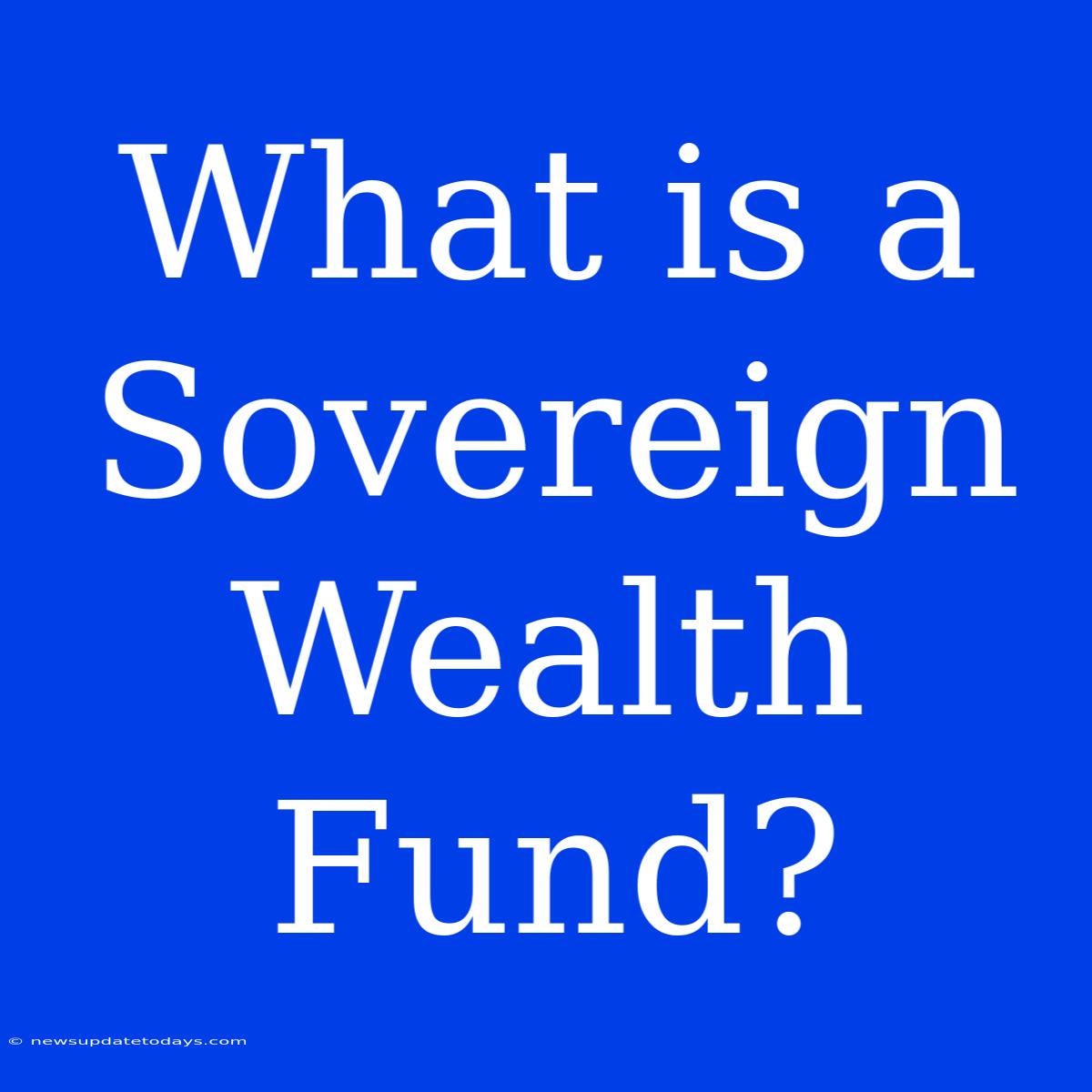Understanding Sovereign Wealth Funds: A Deep Dive into National Treasure Chests
Sovereign Wealth Funds (SWFs) are investment vehicles owned by governments, typically using revenues from natural resources like oil, gas, or minerals, or surpluses from foreign exchange reserves. Think of them as national piggy banks, strategically investing for future generations. But their role is far more complex than simple savings; they are significant players in global markets, influencing economies and investments worldwide. This article will delve into their purpose, structure, and impact.
What are Sovereign Wealth Funds?
At their core, SWFs are state-owned investment funds. They represent a nation's accumulated wealth, carefully managed to generate returns and ensure long-term financial stability. This wealth isn't just sitting in a bank account; it's actively invested in a diverse portfolio of assets, including:
- Equities: Stocks in publicly traded companies globally.
- Bonds: Government and corporate debt instruments.
- Real Estate: Commercial and residential properties.
- Private Equity: Investments in privately held companies.
- Infrastructure: Projects such as transportation networks and utilities.
Types of Sovereign Wealth Funds
SWFs aren't all created equal. Their investment strategies and objectives vary considerably, categorized broadly into three types:
- Stabilization Funds: Primarily focused on smoothing out budget fluctuations caused by volatile commodity prices. They act as a buffer against economic shocks.
- Reserve Funds: Designed to save for future generations and fund long-term development projects. They often have a longer-term investment horizon.
- Development Funds: Specifically aimed at financing national economic development programs, often within the country's own borders.
Why do Countries Establish SWFs?
The reasons behind a country's decision to establish a SWF are varied but usually involve:
- Managing Revenue Fluctuations: Countries with volatile export revenues (like oil producers) use SWFs to mitigate the risk of boom-and-bust cycles.
- Long-Term Financial Security: SWFs help nations save for future generations, ensuring financial stability even after resource depletion.
- Economic Diversification: By investing globally, SWFs can help diversify a country's economy and reduce dependence on a single industry.
- Strategic Investments: SWFs can be used to acquire strategic assets or companies that benefit the national interest.
The Impact of Sovereign Wealth Funds on Global Markets
SWFs are powerful actors in the global economy. Their massive investment capacity can significantly impact markets, influencing:
- Stock Prices: Large-scale investments can drive up or depress stock prices.
- Interest Rates: Their bond purchases can influence global interest rates.
- Currency Exchange Rates: Their currency transactions can affect exchange rates.
- Company Acquisitions: SWFs are increasingly involved in significant corporate takeovers and mergers.
Potential Challenges and Criticisms
Despite their benefits, SWFs also face challenges and criticisms:
- Transparency and Governance: Concerns exist about the lack of transparency in some SWFs’ operations and governance structures.
- Political Influence: The potential for political influence on investment decisions is a recurring concern.
- Investment Risks: Like any investment, SWFs are subject to market risks and potential losses.
Conclusion
Sovereign Wealth Funds are complex and powerful entities playing an increasingly significant role in the global financial landscape. Understanding their purpose, structure, and impact is crucial for anyone interested in international finance, economics, and global investment strategies. Their future role in shaping the world economy is certain to remain a topic of considerable discussion and analysis.

